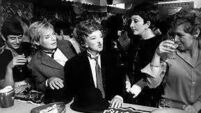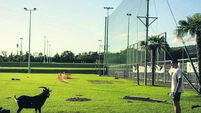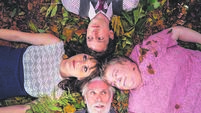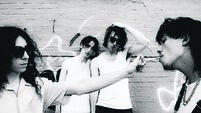Back on the block - Quarter Block Party returns to Cork

Former O Emperor man Raja Baal brings sparkling songcraft to shows.
As much as your writer is sure that many of our readers are wearing thin on the whole ‘post-covid period’ narrative that’s still permeating through, well, everything in the past eighteen months, the fact is that it’s still all to play for in a lot of respects.
Venues new and old are still getting their bearings; gig-goers and casual consumers are still reckoning with the habits they fell into over the course of the crisis and evaluating their relationships to live and recorded music; and finding out about gigs is still a very fragmented business at the grassroots - especially as social media platforms, which largely supplanted postering, flyering and even forums at the turn of the 2010s, began fracturing as singular points of access to information and communities.
It seems apt, then, in more ways than one, that it’s time for the return of a singular, unifying presence on the city’s festival calendar - one that will hopefully focus minds on what’s happening musically in the city and beyond. Quarter Block Party is back, and casting eyes on the lineup, it’s as succinct a summary of the best of Irish music as it always has been, and yet, like most of us after the last three years or so, has been temporally displaced, leaving its rite-of-spring, late-January spot for a summer weekender, Friday, July 14, to Sunday, July 16.
“I'm involved, as is Ruairí O'Donovan, who has been involved since the start, but we're down a few members since we started in 2015, from the original organising crew that came up with the concept,” says co-organiser Caoilian Sherlock. “So yeah, we were a little bit tentative, maybe, about coming back, y'know, lockdown made people prioritise different things. We had to make sure that we were all energised for it, and the summertime kind-of made sense for that energy.
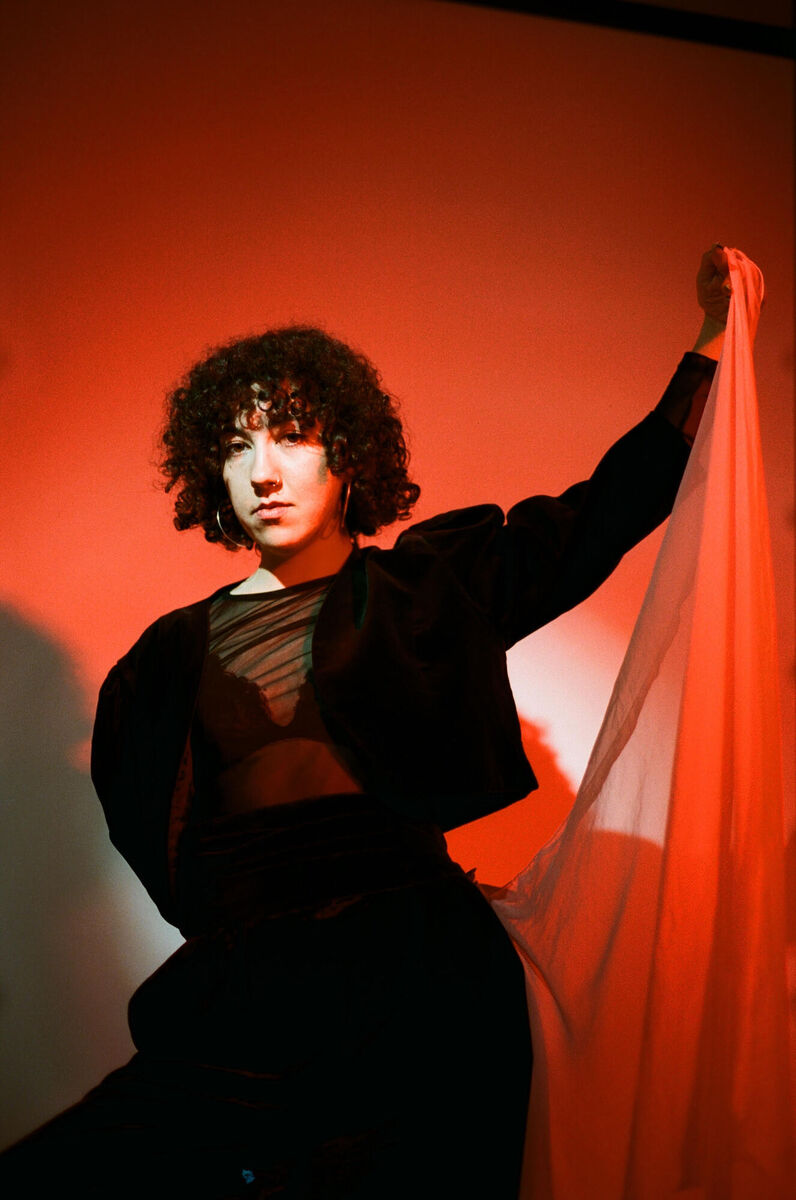
“As people might notice, the festival is a little bit smaller than it has been in previous years. That's for a number of reasons, but mainly, we're trying to engage our community again, we want to get more people involved in organising, we want to meet new people, we want to try new types of events, so it's a little bit of a change. This year, there's a bigger focus on music than previous years, where there was also a lot of theatre, and hopefully, we can bring that back into the fold in future years.
“Music has been the bread and butter, and in one way we're playing it 'safe', but it's full of very avant-garde, experimental music, we're trying different spaces that we haven't used before in terms of the Griffith College, the Green Room of the Opera House. So yeah, it's just about slowly releasing our heads above the parapet. Again.”
The process of booking and organising a festival after the past few years, with all that attends, must surely have changed, to say nothing of the external dust that some of us might naively have thought would be settling by now, including the presence or absence of people leaving and moving amid the housing and cost-of-living crises.
Sherlock discusses the logic behind the lineup as envisioned, as well as some of the considerations that went into venue choices - and the festival’s original mission statement, as well as that of its predecessor, the Quarter collective - this time around.
“The venues and spaces that were available to Quarter in the past are going through a lot of changes, in terms of what venues are used for what types of events. I think that's going to come to a really good place, but there's certain venues that we've used in previous years that are just booked up, or not available, so the landscape of the festival changes a little bit. That's always been the case, it's changed year to year.
“We certainly always focused ourselves in a certain area of the city, people know that we started off on North Main Street, and before that in the Triskel Arts Centre, whereas now, we're a little bit spread all over the place. The idea of being in a "quarter" has always been exciting to us. So originally, we wanted the "quarter" to be North Main Street, and that old-town area, the marshland area of Cork. For this year, we were kind of planning, slightly successfully, to have a different "quarter" for each night.
“Friday night is all in St. Luke's, we've got a show at Griffith College, in the chapel, followed by a show on the stage at Live at St. Luke's for a very limited capacity gig - a beautiful opportunity to see the church in a different way. On Saturday, we've got some shows on the southside, at Coughlan's and the Circus Factory. And then on Sunday, we're in the city center, with shows at the Green Room and PLUGD. So, yeah, we're trying to make a "quarter" each night of the weekend, and bring a different flavour to different parts of the city each night.”
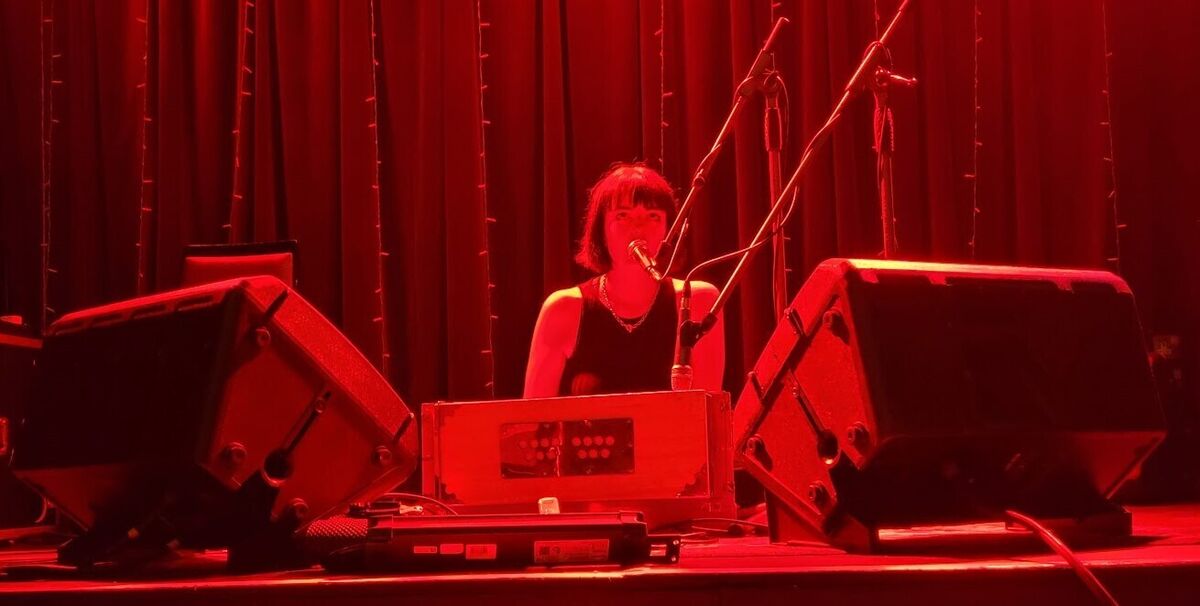
One of the artists on the stage of St. Luke’s on the Friday night will be singer and songwriter Elaine Malone, assuming the Mantua moniker that accompanies her more longform, exploratory and improvisational compositions, with harmonium and voice - running parallel to the music she’s been making under her own name, and tackling both personal and wider concerns about humanity, nature, and decay.
“The last Mantua show before the pandemic would have been Quarter Block Party 2020, right before everything shut down. Since then, I've just been kind-of trying to release some of the pieces I've constructed, that have almost become songs.
“I think keening definitely informs the vocal style, and I think it's very relevant to me, paying homage to this tradition of music, that is almost pagan, there's a violence to it. as it's based in tragedy. A lot of the references for this music are decay, and the destruction of the environment, I suppose - this is more like the space where more abstract things can take precedence.”
Playing Coughlan’s on Douglas Street on Saturday afternoon, alongside singer and composer Elaine Howley, will be singer and songwriter Maija Sofia, gigging in advance of her next release in September. Hailing from rural Galway, and splitting her lockdown time between Dublin and Cobh’s Sirius Arts Centre, Maija’s second album, ‘True Love’, was tracked largely in the facility’s gallery space.
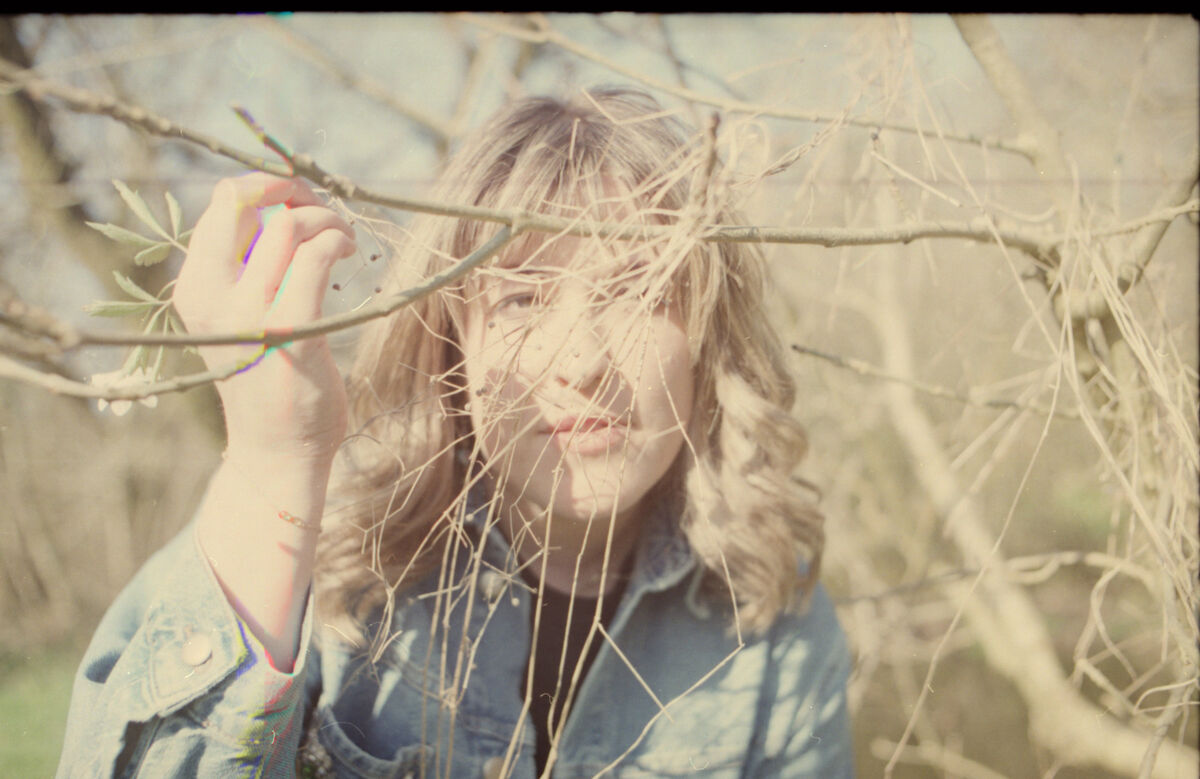
“A lot of the album was written in the Sirius, while I was there for three months, and then I went back later to record it with two other musicians, we did most of the recording there. We finished it later in Dublin, but the main body of the songs were recorded in the gallery space in the Sirius. It's a direct album, I would say. It's about reflecting on the way that obsession and devotion shapes the decisions we make in our lives, different forms of devotion.”
The festival’s place in the city’s cultural life, built on platforming and amplifying the work of countless Irish artists on their respective journeys, from a memorable early excursion for ApocalypsE, featuring very young Outsiders YP and Pharaii opening for Limerick skratchologist Naive Ted, to a CMAT gig at the Black Dog, in front of a handful of people at the bar - a million miles away from thousands of adoring fans in a Glastonbury singalong.
But at a time when the city is changing, if not so much ‘rising’, Sherlock tackles the question of the challenges and upsides that present themselves on Leeside for artists and facilitators at present.
“I think the city is kind-of revealing itself after the pandemic. Businesses went through a lot of changes, not just venues, and people are trying to figure out this new world. That also includes, I think, technology. I've made this point before, but in the arts, your competition is no longer just other arts events, or sports events that might be on that night. People have technology now in a way that's completely new, so all cities, and Cork is no different, needs to develop a landscape in that new climate, I guess. Running an arts festival inside of that is very interesting. I think we can play with the concept of it, and we can collaborate with different parties, different stakeholders.
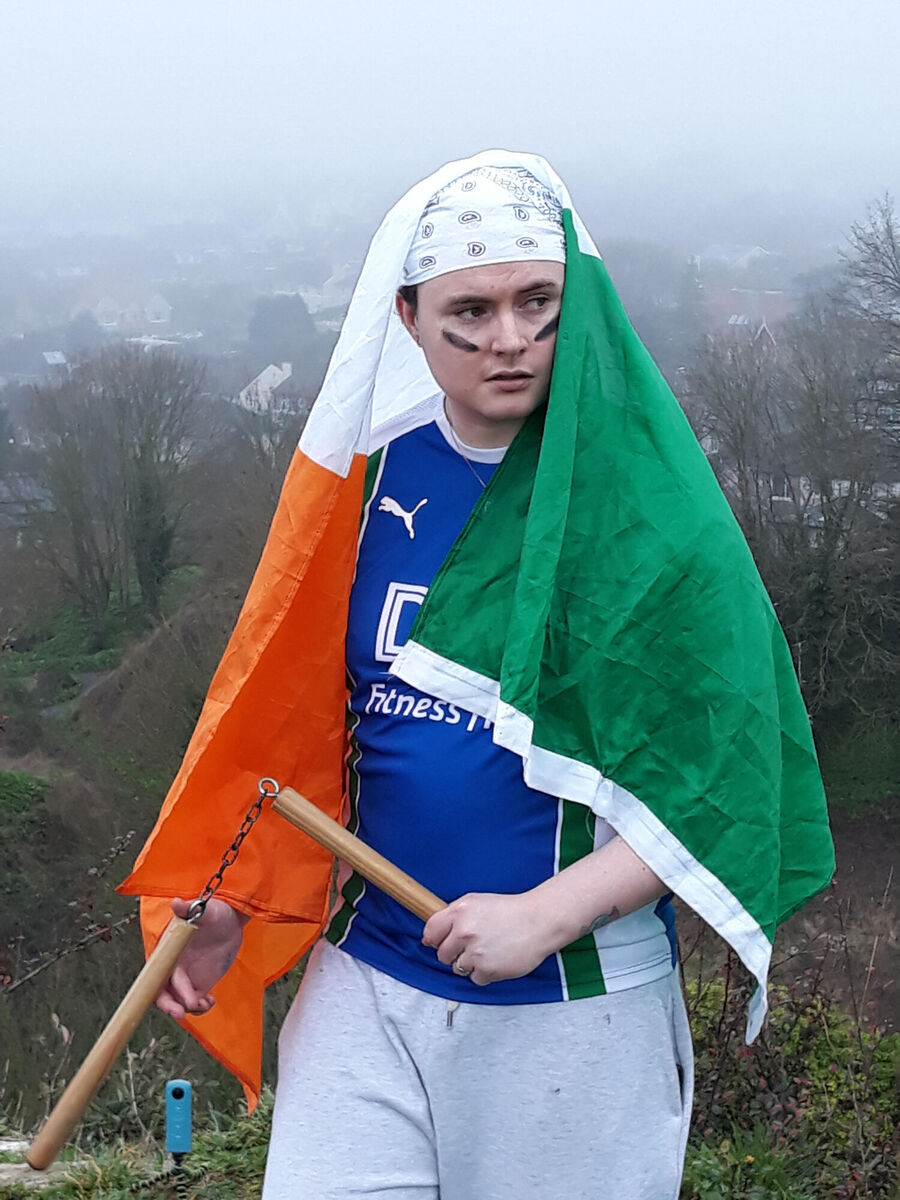
“It gives us an opportunity as a festival, and as arts workers, to take a more probing look at that - that's always been the case for Quarter Block Party, and that's sometimes been a hard sell for us, because it's slightly conceptual, but it's always been very exciting, I think. It's a very challenging time for businesses, and it's a challenging time for the arts, but the arts always rise to the challenge, so it will reveal itself, I think, in the next few years. I think we need to be patient with it, and positive, as well.”
The return of Quarter Block Party is much-anticipated among the city’s gig-goers, but amid changing times, it’s also very much welcomed back by the artists and wider communities around them - a point of focus for the local scene, and an important of re-laying foundations for the city’s creative communities.
“For as long as I've lived in Cork, every time Block Party has come around, there's always been such great programming,” says Malone. “They're always amazing at picking really exciting things, knowing about them before everyone else, very soothsayer-y taste. The gender balance of the festival is incredibly good, there's so many incredible female artists on that programme. I'm just very excited. We're very lucky to have the festival back.”
“I think more than ever, Ireland needs smaller grassroots festivals, because so much is getting swept up in the corporate world," says Maija. "Dublin has these big promoters, with lots of money, putting on big shows, and I think the sense of community gets forgotten about, and that's something that Quarter Block Party, and I find in Cork in general, there's a good supportive community.
“Music just never exists in a vacuum. I know people have this idea that artists will just go into the wilderness, or whatever, and do their own work, and then it magically appears. But I think particularly in music, you need to have collaboration and community. I want more things like this [laughs], like, this is good, I'm glad Quarter Block Party is back, we need more of this.”
Quarter Block Party takes place at venues around Cork from Friday, July 14, to Sunday, July 16, at venues around Cork City. For more information and links to tickets, go to linktr.ee/quarter_cork.
